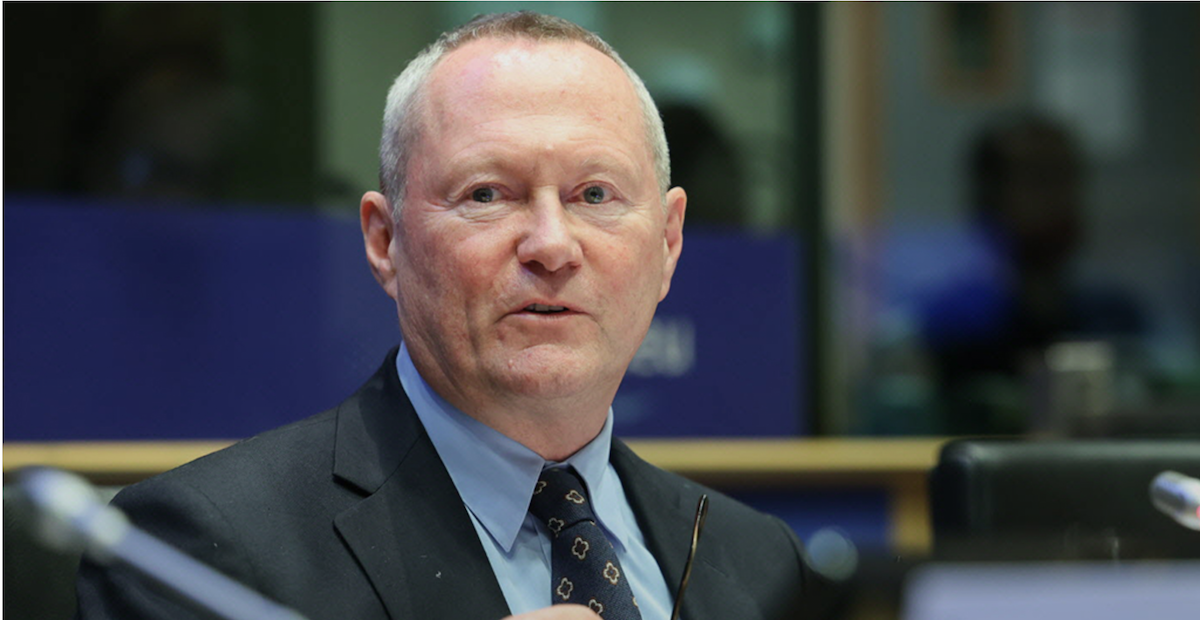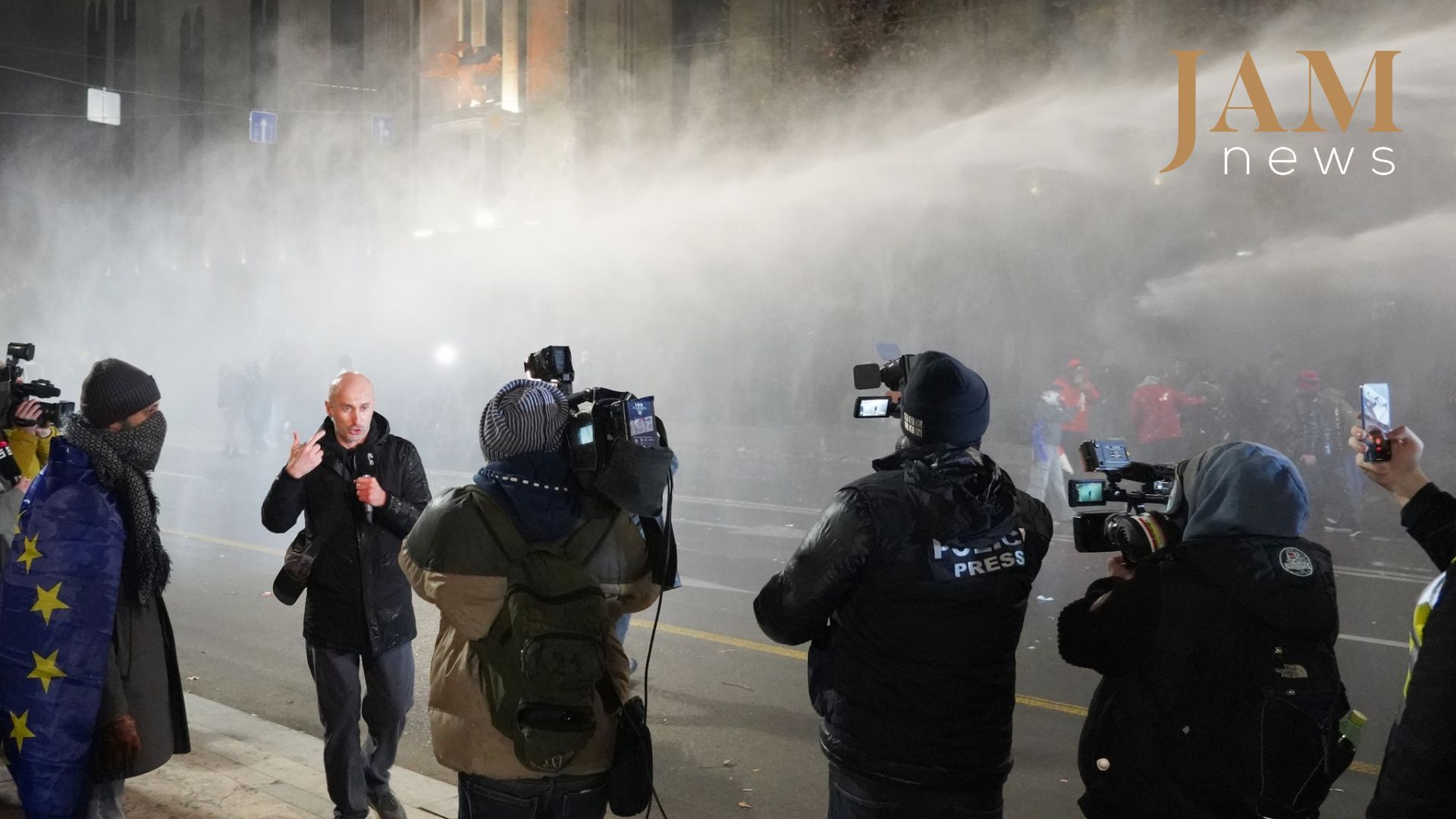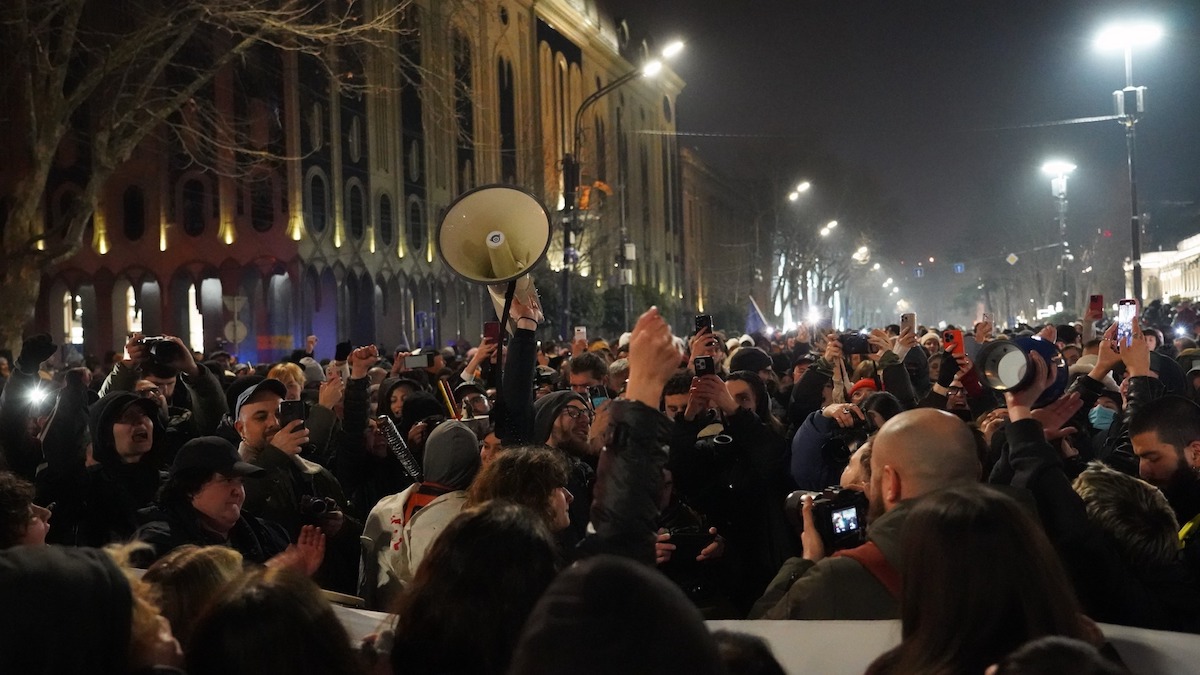Georgian Ombudsman: 'In some cases, brutality of law enforcement at protests can be equated to torture'
Georgian Ombudsman’s report on protests
According to the 2024 report by Georgia’s Public Defender Levan Ioseliani, participants of peaceful assemblies, detainees, and journalists were subjected to ill-treatment by law enforcement officers both in spring — during protests against the “foreign influence transparency” law — and in winter, during demonstrations against the suspension of Georgia’s EU integration.
In his annual report submitted to parliament, the ombudsman noted that the past year was particularly severe and memorable in terms of human rights violations at protests. Ioseliani said the number of people reporting ill-treatment during demonstrations had increased.
The report states that the alleged abuse — including torture, inhuman and degrading treatment — of protesters in both the spring and winter was systematic and, in some cases, large-scale. According to Ioseliani, dozens of victims described identical methods and techniques of mistreatment used by special forces.
What does the report say?
● In addition to beatings and violence against civilians by law enforcement officers, there were instances of harassment and violence targeting civil activists, journalists, and public figures by unidentified individuals. These included coordinated phone threats and blatant intolerance expressed in various forms.
● Throughout the year’s protests, not a single criminal case was launched against law enforcement officers — despite two separate incidents of violence being captured on video, which helped identify officers who had exceeded their authority.
At the same time, the number of arrested protesters reached several hundred. Detainees reported that their phones and other personal belongings were confiscated en masse.
● Officers of the Special Tasks Department of the Georgian Ministry of Internal Affairs do not wear any identifying insignia, which significantly hinders the identification of perpetrators and delays investigations. This, in turn, fosters a climate of impunity. In some cases, the Ministry of Internal Affairs refused to cooperate with the Special Investigation Service in identifying suspects, obstructing efforts to hold those responsible for human rights violations accountable.
● The issue of holding police officers accountable for ill-treatment was not raised, even in cases where their identities had been established. The investigation conducted by the Special Investigation Service is ineffective, as it is carried out on a case-by-case basis and focuses only on individual responsibility, without a systemic analysis of the events — including possible orders from superiors or their tacit approval.
Investigations are not being conducted under articles related to torture, threats of torture, or inhuman and degrading treatment.
● Incidents during the spring and winter protests are being investigated under abuse of official power — a charge that does not fully reflect the scale and severity of the violence committed by law enforcement officers.
● Investigators have failed to obtain key video footage from state institutions, private premises, or body cameras worn by officers. Their refusals were based on unconvincing and contradictory explanations.
● Almost none of the groups or individuals who attacked activists and politicians during the spring protests have been brought to justice. Likewise, the so-called titushki who assaulted protesters and journalists during the winter demonstrations remain unpunished.
● During the spring protests, only a few people reported confiscation of phones and personal belongings, whereas during the winter protests, dozens of demonstrators said their devices were taken and their phone contents searched.
● There was a rise in reports from women who said they experienced physical violence and verbal abuse from police officers during the winter protests.
The report also documents cases of ill-treatment involving minors and a person with a disability. The Ministry of Internal Affairs’ General Inspectorate has not yet initiated disciplinary proceedings against the officers involved.
● Protesters are being prosecuted under the Administrative Offences Code, which does not provide sufficient legal safeguards for a fair trial.
● Against the backdrop of these legal shortcomings, the parliament has significantly toughened administrative penalties. In two cases where detainees were charged with drug possession, the police made no effort to obtain neutral evidence during searches.
● The Public Defender’s Office faces difficulties in locating detainees before they are transferred to temporary detention centres.
Georgian Ombudsman’s report on protests





















